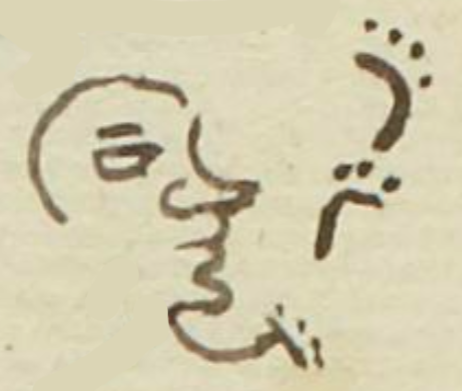Iyaqui (MH647r)
This black-line drawing of the compound glyph for the personal name Iyaqui, "Young Distinguished Warrior," is attested here as a man's name. The glyph includes three human footprints coming away from a man's face and heading upward on the right. The head of a man might provide a hint for the -qui suffix, given that this suffix is found on many nouns for men's occupations. Or, perhaps it suggests a phonetic indicator for a possessive (I-) at the start of the name?
Stephanie Wood
The adverb (iyaquic, which is a close homophone, means "on foot" or "upright"), and this may explain the phonetic use of the footprints. Footprint glyphs have a wide range of translations. In this collection, so far, we can attest to yauh, xo, pano, -pan, paina, temo, nemi, quetza, otli, iyaquic hualiloti, huallauh, tetepotztoca, totoco, -tihui, tlacza, and the vowel "o." Other research (Herrera et al, 2005, 64) points to additional terms, including: choloa, tlaloa, totoyoa, eco, aci, quiza, maxalihui, centlacxitl, and xocpalli.
Stephanie Wood
pedro yyaqui
Pedro Iyaqui
Stephanie Wood
1560
Jeff Haskett-Wood
huellas, footprints, pasos, steps, icximachiyotl, xocpalli, icxipamitl, caras, personas, guerreros, guerra, subir, irse, nombres de hombres

iyaqui, young distinguished warrior, https://nahuatl.wired-humanities.org/content/iyaqui
Ido (?)
Stephanie Wood
Matrícula de Huexotzinco, folio 647r, World Digital Library, https://www.loc.gov/resource/gdcwdl.wdl_15282/?sp=376&st=image
This manuscript is hosted by the Library of Congress and the World Digital Library; used here with the Creative Commons, “Attribution-NonCommercial-ShareAlike 3.0 License” (CC-BY-NC-SAq 3.0).





